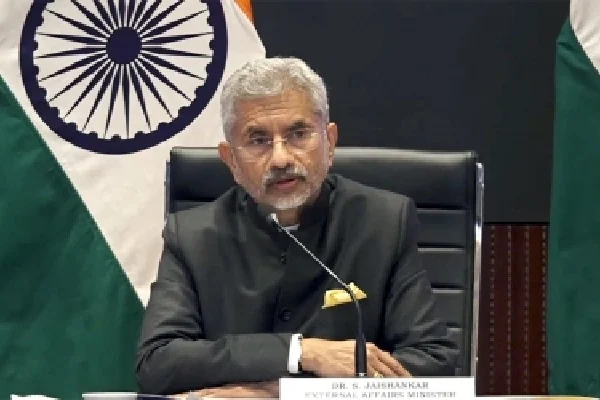India’s External Affairs Minister, Dr. S. Jaishankar, took a diplomatic yet firm stance in his address at the United Nations General Assembly (UNGA), where he indirectly criticized Canada’s response to the Khalistani terrorist controversy. The backdrop to this critique was the allegations made by Canadian Prime Minister Justin Trudeau, who suggested the “potential” involvement of Indian agents in the killing of Khalistani separatist Hardeep Singh Nijjar in June.
In his UNGA speech, Jaishankar underscored a fundamental principle: responses to terrorism, extremism, and violence should not be subject to political convenience. He highlighted the importance of upholding territorial integrity and refraining from interference in the internal affairs of other nations without selectively applying these principles. It was evident to observers that Jaishankar’s comments were a veiled critique of Canada’s handling of the Khalistani issue.
The controversy surrounding the Khalistani separatist’s killing had strained India-Canada relations, with Trudeau’s comments further complicating matters. By addressing this issue at the UNGA, Jaishankar sought to emphasize the significance of consistent, principled responses to global challenges.
Additionally, Jaishankar touched upon several other crucial topics during his UNGA address. He reflected on India’s role in hosting the G20 Summit and the nation’s aspirations for the future. The minister’s reference to India’s Moon mission, Chandrayaan-3, showcased the country’s commitment to space exploration and technological advancements.
“India has entered the ‘Amrit Kaal’,” Jaishankar declared, suggesting that India is in a phase of significant transformation and development. He pointed to the successful landing of Chandrayaan-3 on the Moon as a symbol of India’s growing capabilities and contributions to space exploration. He also highlighted India’s endeavors in digitally enabled governance, the expansion of amenities and services, rapid infrastructure development, and the vibrant start-up ecosystem.
Furthermore, Jaishankar acknowledged the Women’s Reservation Bill, a landmark legislation that has received approval in both Houses of the Indian Parliament. The passage of this bill reflects India’s commitment to promoting gender equality and empowering women in the political sphere.
Jaishankar’s address concluded with a unique greeting, “namaste from Bharat.” This reference to “Bharat,” alongside “India,” is derived from the Indian Constitution and represents the country’s identity. The choice of terminology was not coincidental, as it had been utilized in several official G20 documents during Prime Minister Narendra Modi’s representation of ‘Bharat’ at the recently held G20 Summit.
In essence, Jaishankar’s address at the UNGA was a subtle but impactful assertion of India’s principles and values on the global stage. It reaffirmed India’s commitment to addressing global challenges while championing the principles of non-interference, consistency in responses to terrorism, and gender equality.
